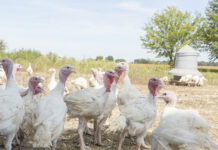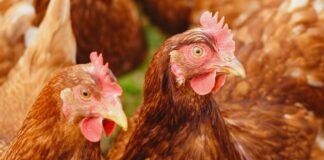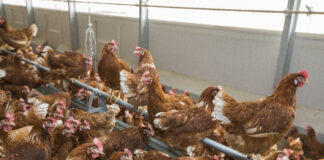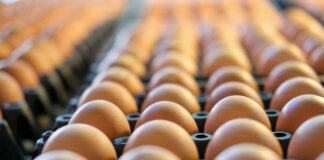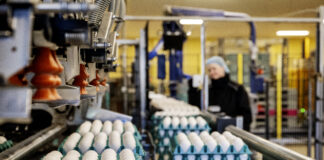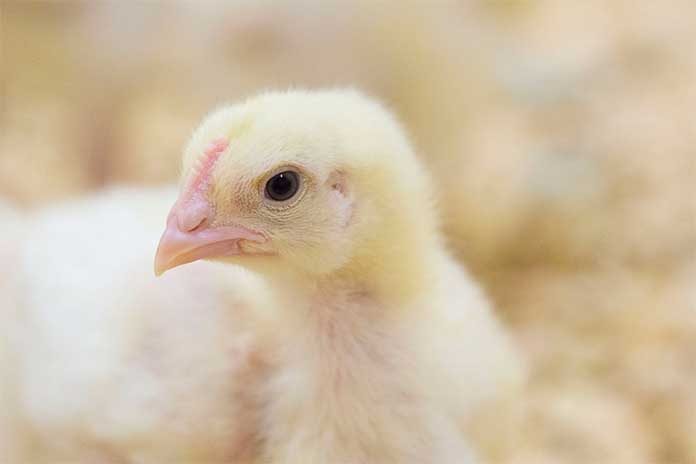
Reprogramming of broiler growth and developmental events is increasingly recognised as having lifelong effects on animal health, welfare and productivity. Whilst most studies have concentrated on metabolic effects of reprogramming, the immunity of the progeny may also be compromised.
This is of particular significance in broiler birds, which are prone to infectious diseases post hatch. Broiler breeder hens are feed restricted to 50% of ad libitum feed intake, leading to a state of chronic hunger. This persistent hunger may cause stress to hens, leading to re-programming of progeny immunocompetence. This study examined the link between maternal stress caused by feed restriction in hens and the ability of their offspring to respond to an immune challenge.
Thirty six Cobb 500 broiler breeder hens were maintained at three levels of bodyweight; 3.4kg, 3.6kg and 4.0kg, over 19 weeks. Hen behaviour was observed daily using an ethogram over two weeks of lay, and serum was collected at 31 weeks for corticosterone levels. From these hens, 170 viable chicks were hatched, weighed and placed into group rearing pens of ten birds from the same hen treatment group, with three replicates of each group. Half of the chicks from each hen were given a series of three injections of lipopolysaccharide (LPS) E.coli O55:B5 at 16, 18 and 20 days old. Birds were injected at a dose rate of 0.5 mg/kg bodyweight, intraperitoneally. Blood samples were collected from the brachial vein of three birds per pen on days 21 and 35 and heterophil/lymphocyte (H/L) cells were counted. H/L counts were completed by counting one hundred cells per slide, three times. Birds were grown until 42 days old.
Hens maintained at a lower bodyweight showed increased pecking behaviour compared to hens at a higher bodyweight (P<0.05). Corticosterone levels were also higher in low bodyweight hens (P=.013). Together these results indicate an unfulfilled hunger drive and possible stress in these birds. Hen bodyweight also influenced progeny growth from days 35 to 42 in male birds (P<0.05). Males from heavy hens grew heavier in this week than those from medium and low bodyweight hens. Sex effects were also observed on day 23 H/L counts (P<0.05) with a higher H/L ratio in female progeny from heavy hens compared to male birds from all hens, and females from low and medium bodyweight hens, demonstrating an effect of hen bodyweight on the response of female birds to an LPS challenge. Females from heavy hens were therefore more sensitive to the LPS immune challenge and increased immune cell numbers to a greater extent than those from hens restricted to lower bodyweights.
From this study, a link between hen bodyweight and progeny growth and immunity was demonstrated through differences in growth, circulating immune cell counts and response to an immune challenge (LPS).The mechanism behind these differences needs to be investigated further as well as differences between males and females observed in this study.


